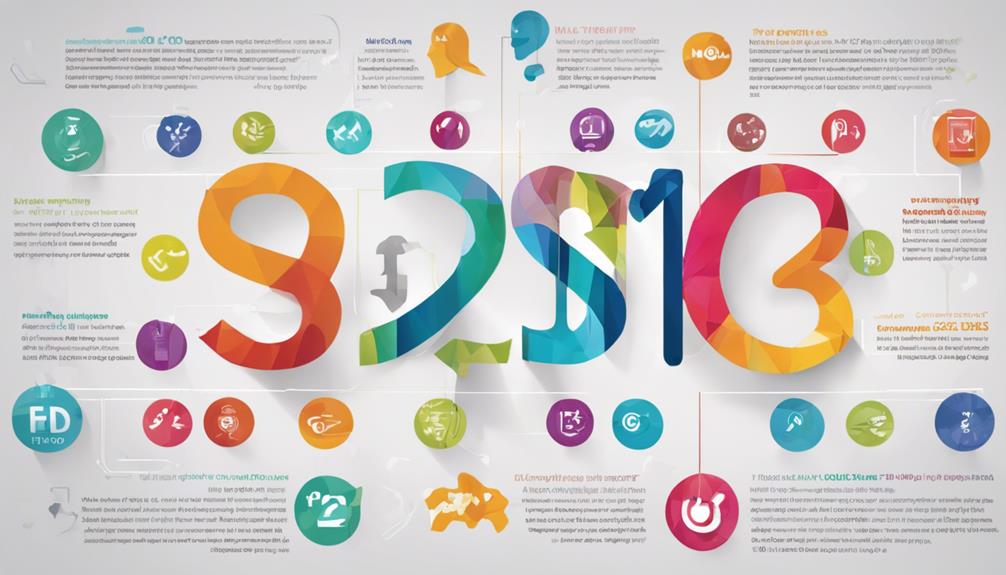Embarking on the journey of healthcare coding, it is interesting to note that about 15% of adults in America, aged 18 and above, have stated they have faced hearing problems. Understanding the specifics of Hearing Loss ICD Codes is crucial for accurately recording and addressing this common issue. Dive into this topic to uncover why mastering these codes is key in the medical field.
By unraveling the complexities of these codes step by step, we can enhance our ability to provide optimal care for individuals with hearing impairments.
Let's uncover the key insights and practical tips that can streamline this process for healthcare professionals.
Key Takeaways
- ICD-10-CM codes categorize auditory impairments for precise classification.
- Specific codes differentiate types and severity of hearing loss.
- Accurate coding aids in billing and reimbursement processes.
- Understanding ICD codes is crucial for comprehensive diagnosis and treatment planning.
Overview of Hearing Loss ICD Codes
In our exploration of hearing loss ICD codes, we delve into the comprehensive system of categorization and classification for auditory impairments. The ICD-10-CM codes for hearing loss, particularly within the H90-H94 subcategories, provide a structured approach for audiology and speech-language pathology professionals to document and communicate different types of hearing impairments. These codes encompass a wide range of conditions, including conductive hearing loss, sensorineural hearing loss, and presbycusis, allowing for precise billing and coding processes.
One significant advancement in the ICD-10 coding system is the inclusion of specific codes to differentiate between unilateral and bilateral hearing loss. This distinction enhances the accuracy of medical records and facilitates tailored treatment plans for patients with varying degrees of hearing impairment. Additionally, the availability of codes such as H91.2 for sudden idiopathic hearing loss and H91.1 for presbycusis enables healthcare providers to pinpoint the exact nature of the auditory issue, leading to more targeted interventions. The meticulous categorization of hearing loss ICD codes not only streamlines administrative tasks but also ensures optimal care delivery for individuals experiencing hearing difficulties.
Classification of Hearing Impairment Codes

The classification of hearing impairment codes within the ICD-10-CM system under subcategories H90-H94 meticulously categorizes different types and laterality of hearing loss for precise documentation and reporting. These codes cover a range of auditory conditions, including conductive, sensorineural, and mixed hearing loss. By utilizing these specific codes, audiologists and medical coders can accurately capture the nature of the hearing impairment encountered by a patient.
The addition of new codes in 2017 further refined the classification, offering options for coding unilateral and bilateral hearing loss, as well as specifying laterality within each subcategory. Specific codes like H91.2 for sudden idiopathic hearing loss and H91.1 for presbycusis enhance the ability to document various hearing impairments comprehensively. Moreover, the inclusion of codes for pulsatile tinnitus under the H93.A series expands the coding options for related auditory conditions, facilitating detailed billing and coding practices in audiology.
Understanding Billable ICD Codes

Let's delve into grasping the essence of Billable ICD Codes for hearing loss. When it comes to medical billing and coding for hearing loss, understanding the specific ICD-10 codes is crucial. Here are some key points to consider:
- Differentiation of Hearing Loss:
- H90.0 is used for bilateral conductive hearing loss.
- H90.3 is assigned for bilateral sensorineural hearing loss.
- Specific codes like H90.1 and H90.4 differentiate unilateral conductive and sensorineural hearing loss.
- Coding for Unspecified Hearing Loss:
- H90.2 is employed for unspecified conductive hearing loss.
- H90.5 is utilized for unspecified sensorineural hearing loss.
- Importance of Accuracy:
- Proper documentation of the type and severity of hearing loss is essential for accurate diagnosis and billing.
- Audiologists play a vital role in ensuring the correct ICD-10 codes are used.
- Accurate coding leads to precise billing, aiding in the reimbursement process.
Understanding and using the appropriate billable ICD codes is fundamental in accurately documenting and billing for the various types and degrees of hearing loss.
Clinical Information and Synonyms

Exploring the clinical intricacies of hearing loss involves delving into its various types and associated synonyms. When discussing medical codes for hearing loss, understanding the terminology and synonyms used in the field is crucial for accurate diagnosis and treatment. Below is a table summarizing key clinical information and synonyms related to hearing loss:
| Clinical Information | Synonyms |
|---|---|
| Types of Hearing Loss | Conductive, Sensorineural, Mixed |
| Diagnosis | Audiometry tests for sound intensity and severity |
| Treatments | Hearing aids, Cochlear implants, Surgeries |
| Severity | Ranges from slight to profound based on decibel levels |
This table provides a snapshot of the medical aspects of hearing loss, from the types commonly diagnosed in audiology to the treatments available based on the severity of the condition. Understanding these clinical details is essential for healthcare professionals working with patients experiencing hearing difficulties.
Commonly Asked Questions and Guides

When addressing common queries and providing guidance on hearing loss, it's essential to focus on practical solutions and evidence-based information. Here are some commonly asked questions and guides related to hearing loss and ICD codes:
- How do Hearing Aids Help with Different Types of Hearing Loss?
- Hearing aids don't cure hearing loss but can significantly improve the quality of sound for individuals with conductive, sensorineural, or mixed hearing loss.
- What Causes Sensorineural Hearing Loss and How is it Different from Conductive Hearing Loss?
- Sensorineural hearing loss is often permanent and is typically related to inner ear or nerve issues, whereas conductive hearing loss involves problems with sound transmission to the inner ear.
- Why is Understanding Medical Coding Important in the Treatment of Hearing Loss?
- Understanding ICD coding is crucial for accurate reporting and treatment planning for hearing loss, ensuring proper diagnosis and appropriate interventions are administered.
Frequently Asked Questions
What Is the ICD-10 Data Code for Hearing Loss?
We've the answer to your question.
The ICD-10 data code for hearing loss is as follows:
- H90.0 for bilateral conductive hearing loss
- H90.1 for unilateral conductive hearing loss
- H90.2 for unspecified conductive hearing loss
- H90.3 for bilateral sensorineural hearing loss
- H90.4 for unilateral sensorineural hearing loss.
These codes help healthcare professionals accurately document and track different types of hearing impairments for proper diagnosis and treatment.
What Is the ICD-10 Code for Mixed Conductive and Sensorineural Hearing Loss Right Ear?
Sure, the ICD-10 code for mixed conductive and sensorineural hearing loss in the right ear is H90.13.
It's crucial for accurate medical documentation, treatment planning, and billing. This specific code distinguishes between the types of hearing loss present, aiding in appropriate care.
Healthcare providers rely on it to ensure proper coding and billing procedures. Proper utilization of this code is essential for maintaining precise medical records and providing quality healthcare services.
What Does H90 3 in Hearing Loss Mean?
When we see 'H90.3' in hearing loss coding, it points to bilateral sensorineural hearing loss. This code signifies that both ears are affected by sensorineural hearing loss, often caused by inner ear or nerve damage.
This type of hearing loss can impact speech comprehension. Accurate use of H90.3 is crucial for proper documentation and billing related to bilateral sensorineural hearing loss.
What Is the ICD-10 Code for Routine Hearing?
We use the ICD-10 code Z01.10 for routine hearing evaluations. This code indicates a standard adult medical examination without any abnormal findings, specifically focusing on assessing the patient's hearing status.
It's crucial to document the purpose of the visit accurately to ensure proper billing and healthcare service tracking. By utilizing the correct ICD-10 code for routine hearing, we facilitate precise reimbursement processes and comprehensive healthcare management.
Conclusion
In conclusion, mastering the intricacies of hearing loss ICD codes is crucial for accurate diagnosis and treatment. By understanding the classification, documentation requirements, and clinical information associated with these codes, healthcare professionals can ensure proper billing and quality reporting.
Stay tuned for more updates on the evolving landscape of audiology and speech-language pathology coding to stay ahead in providing optimal care for patients with hearing impairments. Keep learning and improving to make a difference in the lives of those affected by hearing loss.









